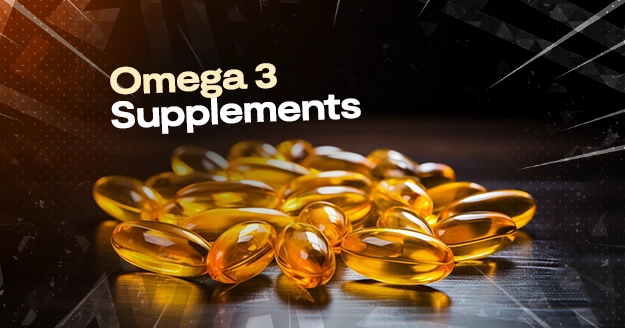Omega-3s come in several forms:
Fish oil comes in natural and processed forms.
Why do you need to know this?
It’s because processing can affect how well the fish oil is absorbed – some forms are absorbed better than others.
Fish. Omega-3 fatty acids may be found in whole fish as free fatty acids (FFA), phospholipids, and triglycerides.
Fish oil. Omega-3 fatty acids in fish oils are mostly present as triglycerides.
Processed fish oil. Food chemists usually transform the triglycerides in refined fish oils into ethyl esters to control the amount of Docosahexaenoic acid (DHA) and eicosapentaenoic acid (EPA) present in the oil.
Reformed triglycerides. Ethyl esters found in refined fish oils can be transformed back into triglycerides. These are known as “reformed” triglycerides.
Where can you get Omega-3?
Natural fish oil
This oil, mostly in the form of triglycerides, is extracted from the tissue of oily fish. It’s the closest to an actual fish that you can find.
Several significant nutrients may be found in natural fish oil such as Vitamin A and Vitamin D.
The proportion of omega-3s in fish oil, including EPA and DHA, varies between fish species and ranges from 18 to 31%.
Processed fish oil
Processed fish oil has been purified and/or concentrated. Ether esters or triglycerides make up this substance. Mercury and PCBs are removed from the oil by purification. EPA and DHA levels may rise as a result of oil concentration.
Krill oil
Krill are small shrimp-like organisms that dwell in extremely cold ocean waters and are the source of krill oil. According to studies, krill oil may offer similar health advantages as fish oil. The omega-3 fatty acids DHA and EPA, which are also present in fish oil, are also present in krill oil but often in lesser proportions.
Some early studies point to the potential benefits of krill oil. Given that the majority of omega-3 fats in fish oil are stored as triglycerides, fats in krill oil, according to some research, may be easier for the body to utilize than those from fish oil. This suggests that this is one of the best omega-3 sources.
Green-lipped mussel oil
A variety of green-shelled mussels that is endemic to New Zealand is used to make green-lipped mussel oil, a dietary supplement. Potentially anti-inflammatory compounds are present in this green-lipped mussel.
It also has small levels of eicosatetraenoic acid (ETA), in addition to EPA and DHA. This uncommon omega-3 fatty acid may be significantly more efficient than regular omega-3s at reducing inflammation.
Mammalian oil
The liver of lean whitefish, the blubber of marine animals, and the flesh of fatty fish are the sources of marine mammal oils. It has a comparatively high DPA content. Additionally, the omega-6 content in mammalian omega-3 oil is quite low.
ALA oil
A vital omega-3 fatty acid called alpha-linolenic acid (ALA) may be found in nuts like walnuts. It is essential for healthy human development and growth. The advantages of ALA may not be as great as those of EPA or DHA. By supporting proper heart rhythm and pumping, alpha-linolenic acid is considered to lower the risk of heart disease.
Algal oil
DHA and EPA, two omega-3 fatty acids that are abundant in algal oil, are derived from marine algae.
Algal oil should not be confused with certain forms of algae, such as brown algae, blue-green algae, laminaria, or chlorella. In order to create algal oil, particular algae species are grown in agricultural settings. Crypthecodinium, Nannochloropsis, Schizochytrium, Prototheca, and Ulkenia, can be used to create it. The oil’s fatty acids may aid with brain function and minimize edema.
Omega-3 capsules
Best fish oil capsules are frequently found as soft gels or pills. The nonvitamin/nonmineral natural substance that both adults and kids use the most frequently is fish oil supplements. The capsule can help with “fish burps.” However, it’s ideal to sometimes open a capsule because the smell of rancid oil can also be masked by them
What to look for when buying the best omega 3 supplements?
Type of omega-3. The most significant types of omega-3s, EPA and DHA, either aren’t available or are present in very small amounts in many omega-3 supplements.
Amount of omega-3. There are supplements that advertise that each pill has 1,000 mg of fish oil. On the label, though, it states that the amount of EPA and DHA is just 320 mg.
Form of omega-3. For better absorption, look for free fatty acids (FFA), triglycerides (TG), reformed triglycerides (rTG), and phospholipids (PLs) rather than ethyl esters (EE).
Purity and authenticity. Purchase items that either meet the GOED requirement for purity or bear a third-party seal. The best fish oil supplements have these labels because they attest to the product’s safety and veracity.
Freshness. Even the best omega 3 supplements are susceptible to oxidation. When they expire, they will smell terrible, lose some of their effectiveness, or even become dangerous. Always look for the product’s expiration date, notice its smell, and look for antioxidants like vitamin E.
Sustainability. Try to purchase fish oil that has been certified by the MSC, the Environmental Defense Fund, or another comparable organization. Fish with short lives tend to be smaller and more sustainable.









